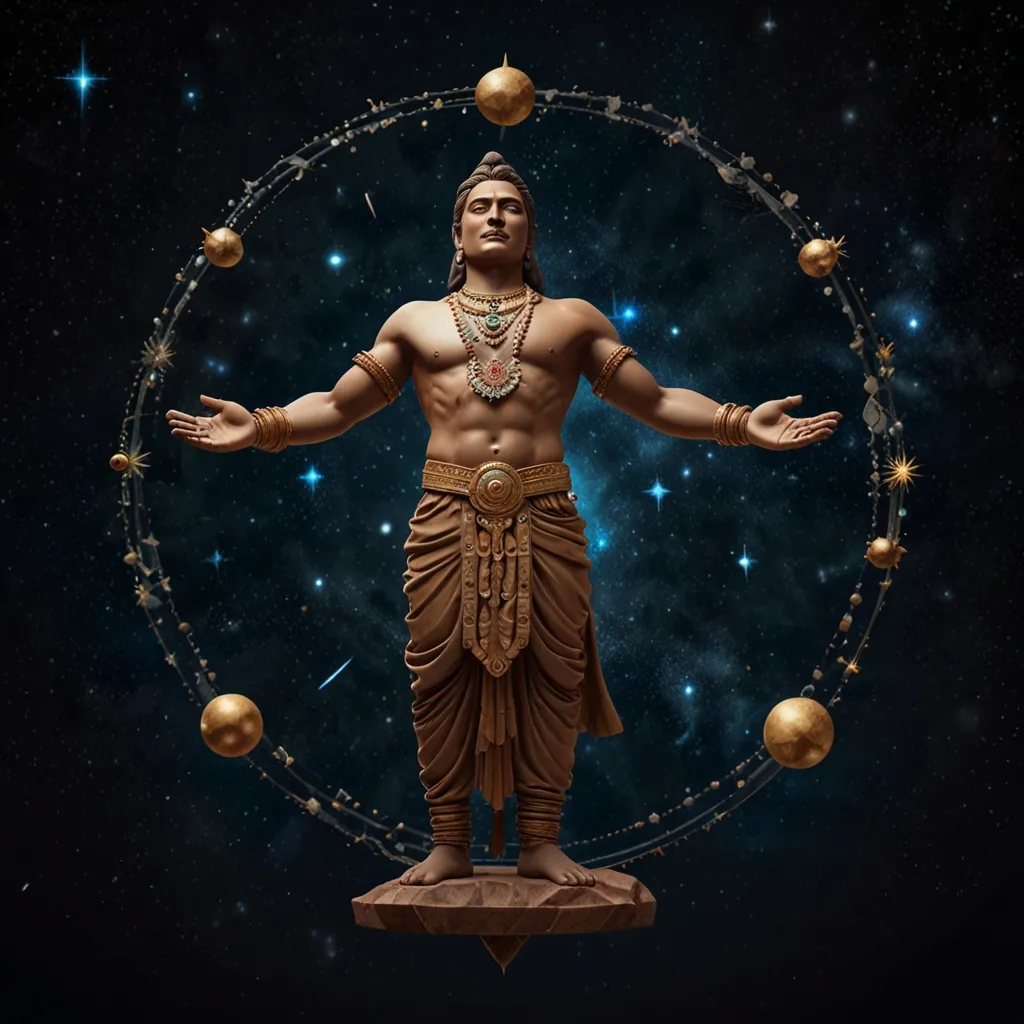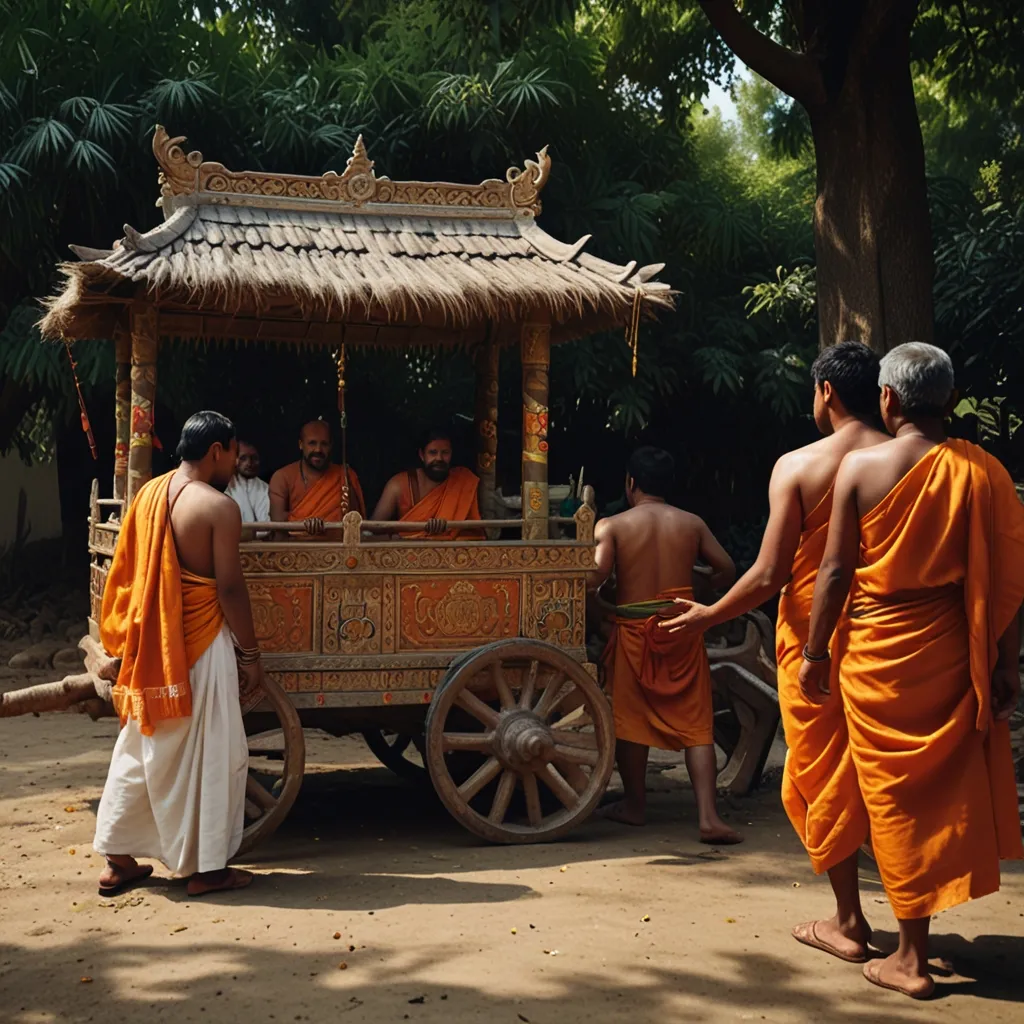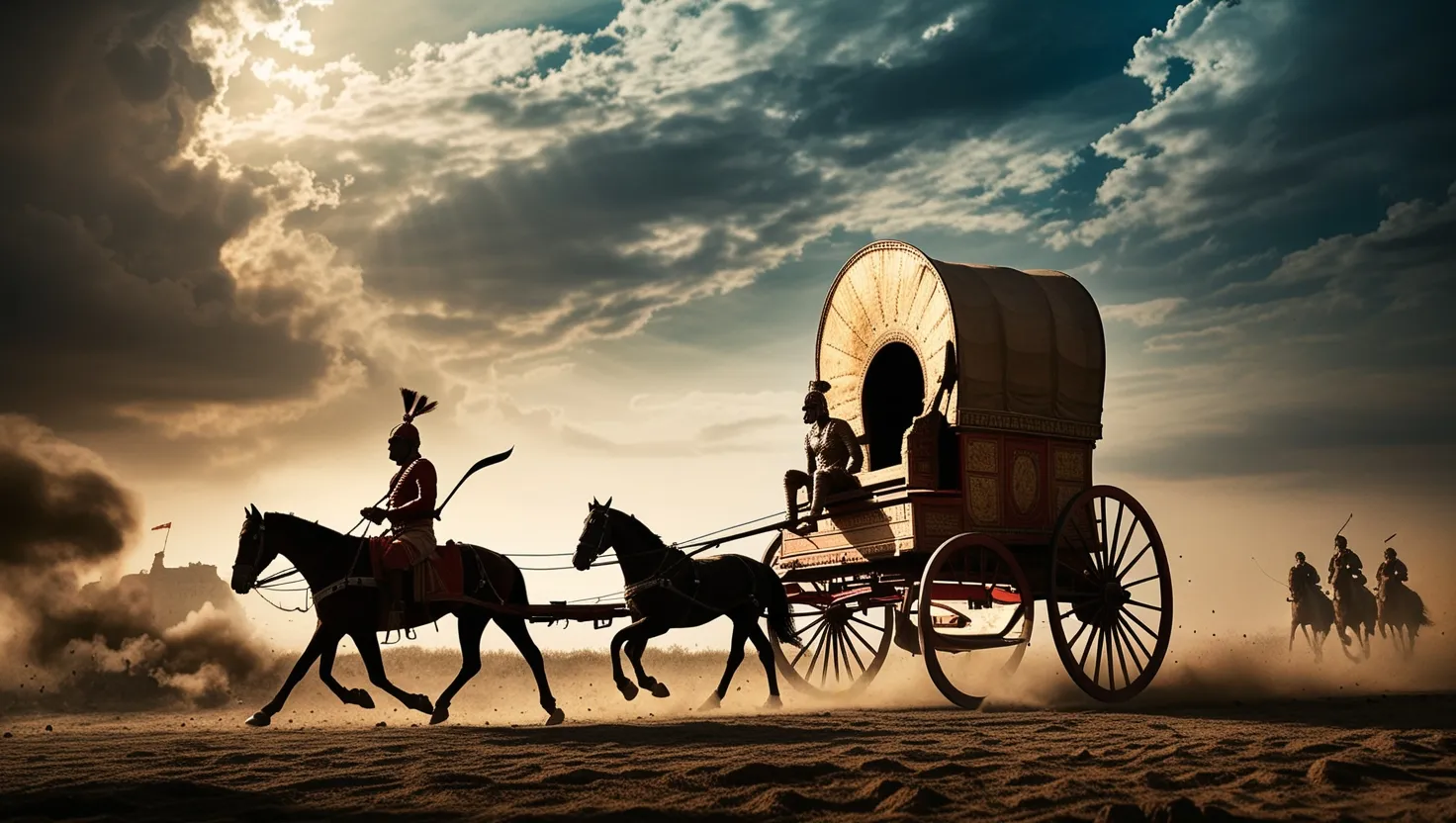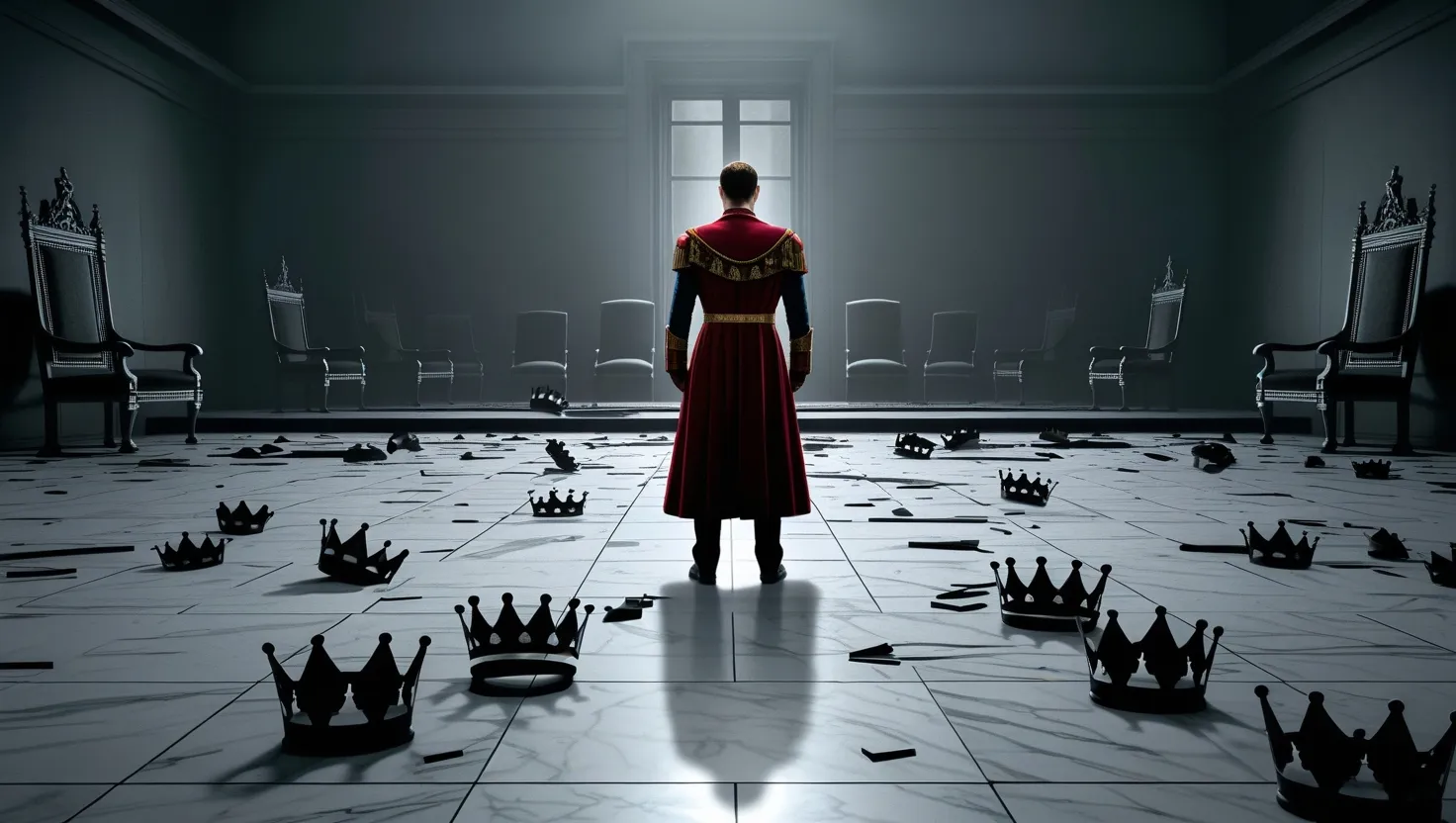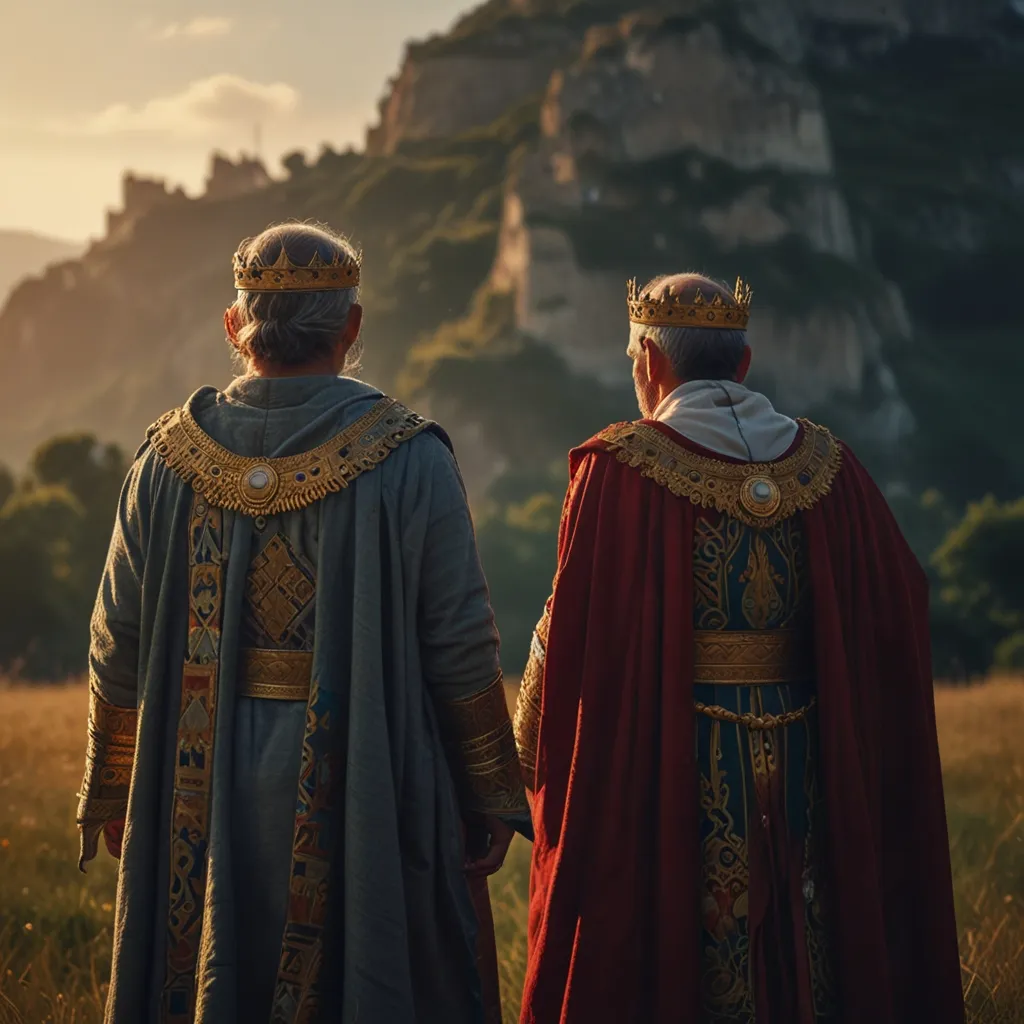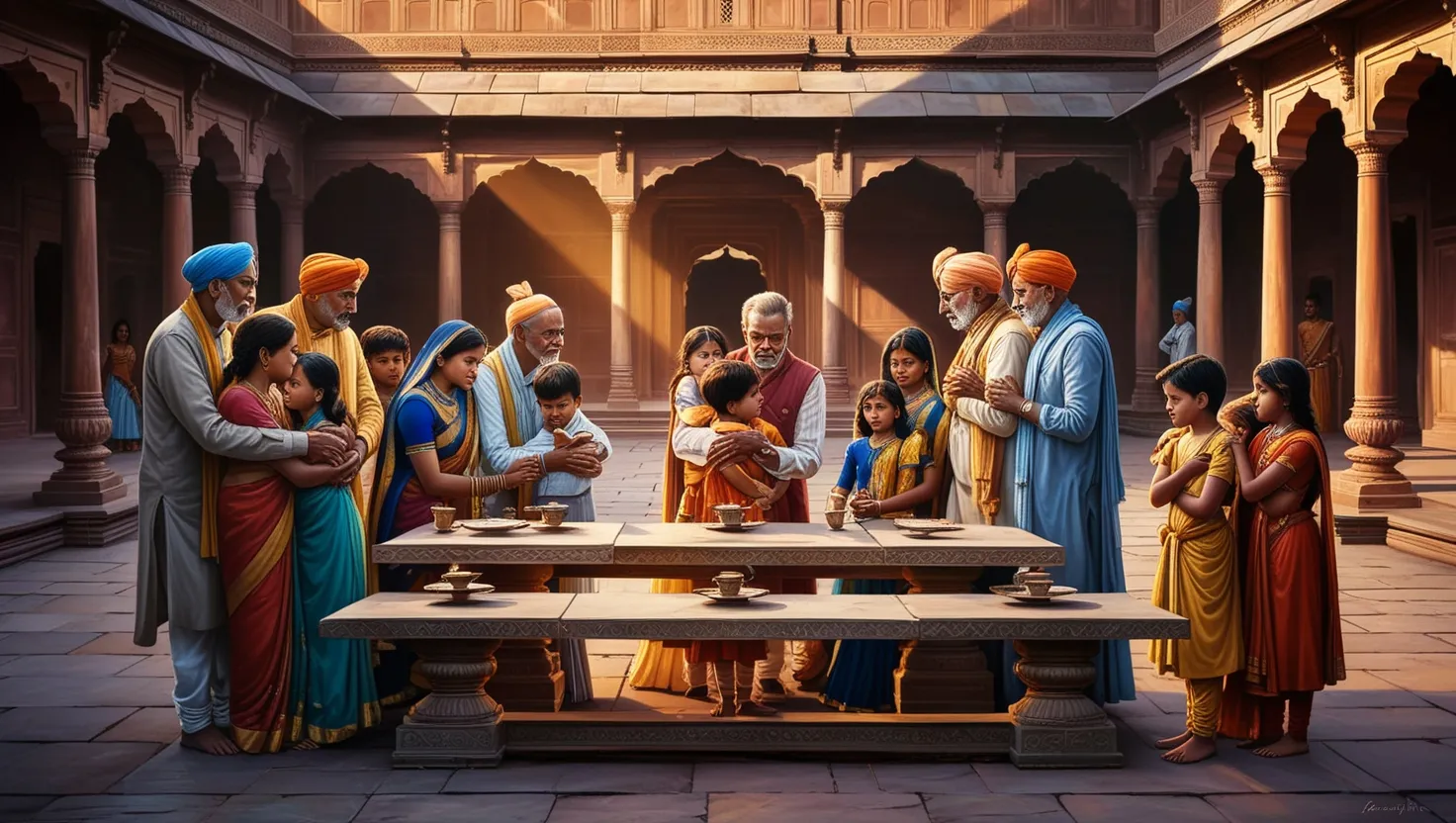Back in the day, in the ancient world of India, there ruled a king by the name Trishanku. He was part of the esteemed Ikshvaku dynasty, a line of rulers celebrated for their integrity and righteousness. Trishanku was a king with a twist. While many sought spiritual growth or riches, he had his sights set on something far from ordinary—he wanted to ascend to heaven in his mortal body.
Trishanku’s aspiration wasn’t about vanity or craving for power. He held a sincere affection for his mortal form, seeing it as an inseparable part of his existence. With this strong belief, he approached Sage Vasishtha, his wise and spiritually adept teacher, pleading with him to perform a yagna, a sacred ritual, that would enable him to tread the heavenly path with his body intact.
Now, Vasishtha wasn’t about to just nod along. He pointed out that taking a mortal body to heaven was against the natural order. It wasn’t a decision made out of spite but one rooted in his profound grasp of cosmic laws. But Trishanku wasn’t going to be swayed that easily. He thought maybe Vasishtha was too old school, so he turned to the sage’s sons, hoping they’d be more open to his wish.
This move backfired horribly. Vasishtha’s sons took Trishanku’s request as a massive slight against their father’s authority and wisdom. Furious, they cursed him, turning him into a Chandala, an outcaste. Once a handsome king, Trishanku was now a repulsive figure, shunned by everyone around him.
Broken and disgraced, Trishanku wandered aimlessly. This wasn’t just a physical journey but also a quest for redemption and a way to achieve his cherished dream. Life took a turn one day when he stumbled upon the hermitage of Sage Vishwamitra—a man with immense spiritual power and an intense rivalry with Vasishtha.
Upon hearing Trishanku’s story, Vishwamitra was moved. But he also saw a chance to outshine his rival Vasishtha. So, Vishwamitra rallied his disciples and prepped for a grand yagna. He summoned all the learned sages, conveniently leaving out Vasishtha’s sons who refused to come anyway.
When the big day arrived, Vishwamitra led the ceremony. After the elaborate ritual, he called upon the devas to accept the offering and escort Trishanku to heaven, body and all. But, surprise, surprise—the devas didn’t show up. Angered, Vishwamitra vowed to send Trishanku to heaven by his own spiritual might.
True to his word, Vishwamitra made Trishanku ascend. But heavens have their gatekeepers, and Indra, the king of devas, barred his entry. Indra pointed out that someone cursed by Vasishtha’s sons couldn’t waltz into heaven. So, down Trishanku plummeted, pleading with Vishwamitra to save him.
Vishwamitra wasn’t done. He halted Trishanku mid-fall and used his divine power to create a new heaven right there, complete with seven planets, Saptarishis, and twenty-seven stars. Trishanku would rule this new celestial setup.
This didn’t sit well with the devas, who rushed to Vishwamitra, begging him to rethink his plan. They insisted that a cursed individual simply wasn’t fit for heaven. Steadfast, Vishwamitra struck a deal. He told Indra he could keep heaven his domain if he let Trishanku stay suspended in this new universe.
They agreed. Trishanku’s impossible dream came true, and he found a celestial place among the stars. This legend carries some invaluable lessons. For starters, don’t fight against nature, no matter who’s got your back. Even if you have powerful friends, some things just aren’t meant to be.
The story also serves as a reminder that people who step up to help might have their own agendas, and those who turn you down might actually be your true allies. Another takeaway is the importance of compromise. When two powerful entities like Indra and Vishwamitra are involved, meeting halfway can be the wisest move. They could have continued their power struggle, but they chose a middle path that worked out for everyone.
Finally, Trishanku’s story shows that good deeds don’t go unrewarded. He was a good king, and that earned him a place among the stars, ensuring his tale would be remembered through the ages.
To sum it up, King Trishanku’s story is one of relentless determination and understanding the laws of nature. It tells us that true friends may sometimes deny us what we seek, and compromise often yields the best outcomes. Above all, it reinforces that with the right support and a bit of divine magic, even the wildest dreams can find their way to reality.
